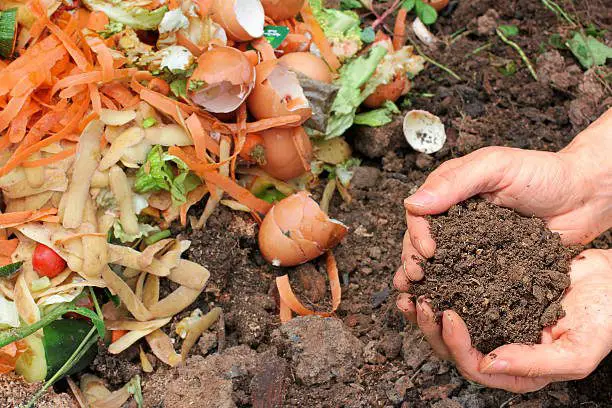Agricultural wastes are a resource that can be used as fuel, fertilizer, and compost. The use of agricultural waste materials is a common practice among farmers, especially in developing countries.
There are many different types of agricultural wastes such as crop residues, livestock manures, and poultry wastes which can be utilized effectively if managed properly.
Agricultural waste is a by-product of agriculture. It can be organic, inorganic, or mixed. Agricultural waste is a valuable resource that can be used as a source of renewable energy, fertilizer, and other products.
Agricultural Wastes Management
Agricultural waste management is the process of managing agricultural wastes from the time they are generated until they are disposed of or reused.
Waste management is important to the success of an agricultural operation. Waste management is a problem in all parts of the world and has received a lot of attention in recent years.
Agricultural Waste Treatment Techniques
Agricultural wastes can be treated in two ways:
Biological treatment: It involves the use of microorganisms to degrade organic materials and convert them into simple carbon dioxide (CO2) and water. It is an aerobic process when oxygen is present, or anaerobic when it isn’t. This process usually involves four stages: hydrolysis, acidogenesis, acetogenesis, and methanogenesis.
Chemical treatment involves the use of chemicals such as lime or soda ash to destroy plant tissues in preparation for subsequent operations such as composting or incineration.
In addition to these two methods of treating agricultural waste, there are several other means which include physical treatment; thermal treatment; thermochemical conversion; anaerobic digestion processes (AD), etc.
Agricultural Waste Production
The total quantity of agricultural waste produced is determined by the amount of land being farmed, the type of crop being grown, and the animal husbandry practices employed on that farm.
Agricultural waste is generated in every step of the production process: from planting to harvesting and beyond. Waste is not only produced during harvest periods but also during unharvested crop times when farmers may be preparing their fields for new plantings. Agricultural waste can also be generated through animal husbandry practices, such as manure management systems or feedlot disposals.
All stages of agriculture produce some form of agricultural waste product; however, different types are created by each segment depending on what crops they grow (or animals they raise).
Read Also: The Two (2) Main Modern Waste Management
Agricultural By-Products and Waste Materials
Agricultural by-products are a by-product of the production process, and their generation is inevitable. Examples include agricultural wastes, such as straws and husks; waste materials such as animal manure, poultry droppings, and organic fertilizer wastes; other agricultural by-products including straws of wheat grasses that are used for fodder production.
Waste materials may also be produced at the processing stage of food or energy crops (e.g., rice bran). The management techniques vary from one country to another depending on local circumstances but there are some common approaches used globally:
Crop Residues
Crop residues are the parts of the plant that remain after harvest. Crops that are harvested for their fruit or seeds are called cash crops, while crops that are harvested for their stems, leaves, and roots are called cover crops.
Cover cropping is an important part of sustainable agriculture because it improves soil health by recycling nutrients from organic matter back into the soil.
Along with crop residue, cover crops also provide valuable habitat for beneficial insects and pollinators needed to support healthy ecosystems on farms everywhere
Livestock Wastes
Livestock wastes are generated in large quantities and consist of manure, urine, and other animal byproducts. Due to the large amounts of waste produced and the potential for pollution, it is important to manage these materials properly.
Manure has high nitrogen content (N), which can be used as fertilizer or soil conditioner for crops that need a lot of it (such as corn). Manure also contains phosphorus (P), which is needed for plant growth but can be harmful if applied at too high a level.
Read Also: Impact of Agricultural Wastes on Human and Environment
Poultry Manure and Wastes
Poultry manure and wastes are good sources of organic matter, nitrogen, phosphorus, potassium, calcium, and magnesium. Poultry manure is often alkaline which can be used to neutralize soils containing high levels of acidity.
It has the ability to bind up excess soil nutrients that would otherwise be leached from the soil (plant-available nitrogen) or washed away into surface water systems.
To prevent adverse environmental impacts, waste management must be included in agricultural plans.
Agricultural waste management is a critical component of sustainable agriculture. It is important for farmers to be able to manage their agricultural wastes, because:
Waste management is a source of income for farmers. Farmers can sell their agricultural wastes or use them as animal feed, and they can also earn money by selling compost products.
Waste management helps prevent nutrient loss from the soil by supplying nutrients to it through composting or other methods. This helps to maintain soil fertility and encourages greater crop yields in the future.
Waste management reduces food prices since less food will need to be produced if there are fewer losses during processing or transportation (because less waste is being produced).
The agricultural sector contributes to the production of many waste streams, and these are often poorly managed. The result is that they pose threats to human health and ecosystems, including soil and water resources.
In addition, some agricultural wastes can be used as alternative energy sources or feedstock for other industries. Therefore, it is important for governments to develop policies and programs that encourage farmers to implement waste management practices on their farms in order to protect our environment from adverse impacts caused by agricultural waste.
Read Also: General Impact of Wastes on Environment

